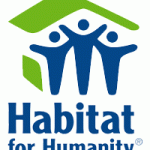Windows are an important part of a house. They make a house attractive, allow fresh air to enter, allow natural sunlight heating, but they can account for about 25% of energy bills through heat leak. The type and condition of the windows determine the cost savings. Replacement windows that are energy efficient can be expensive but if you consider the long term savings, you would realize it is the best option.
Why should you purchase energy efficient windows?
Low condensation
Low-emissive coated glass are manufactured with a thin layer of metal finish. This glass material reduces condensation that cause frost to accumulate on windows. Frost on windows will cause the need for extra heating which is not a good on your budget.
Reduced HVAC costs
Power efficient windows help minimize cooling loads and peak heating by preventing drafts, heat leaks, and condensation. Homeowners can save money on smaller heating systems, and air conditions because of the reduced load.
Four important features to look for when buying energy-efficient replacement windows:
Glazing
Double-pane or triple-pane windows are more energy efficient than ordinary glass windows. They are filled with gas for better insulation. The gas can either be argon or krypton-which is the best insulator. Gas-filled windows protect the room from ultraviolet rays and heat in the summer, and trap heat inside the room in winter.
Low e-coating
Low e-coating adds a special tint, which prevent ultraviolet rays and heat transfer, to your windows without blocking out natural sunlight. It is a great idea to coat your glass with low-emissive coating because it is cheap. Low e-coating adds a nice metal-oxide finish to your windows and it doesn’t allow heat leak as it reflects heat back into your room.
Frame material
About 90% of windows are made of vinyl. Vinyl is not eco-friendly as it releases toxic fumes during manufacturing process. Aluminum frames are not used often because they conduct heat. Aluminum frames are less susceptible to expansion and contraction.Better options are wood and fiberglass frames, which are much more expensive.
Casement style
The way a window is designed to open affects its efficiency. Casements with pivot have the tightest seal but cost highest. double hung windows are cheaper and are the second best option. Sliding windows costs lowest and are least efficient.
Cost is the only disadvantage of installing energy efficient windows. But if you consider the long-term saving in six years time, for example, you will save much more compared to other types of windows.





